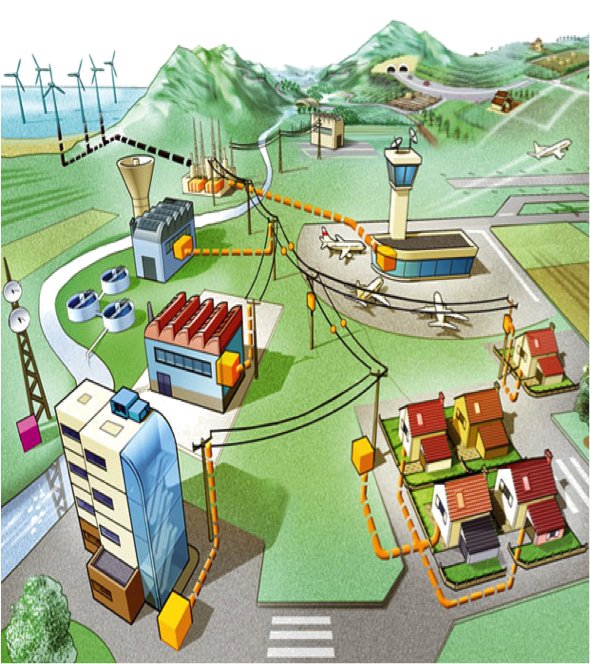
|
ENES 489P Special Topics in Engineering:
Hands-On Systems Engineering Projects
|
|
|
|
INSTRUCTOR
Associate Professor Mark Austin ,
Department of Civil and Environmental Engineering, and
Institute for Systems Research,
University of Maryland, College Park.
PROJECT ASSISTANTS
Parastoo Delgoshaei, Graduate MSSE Student.
David Daily, Graduate MSSE Student.
|
|
|
|
PROJECTS: SPRING SEMESTER 2011
Midterm Project Presentations, Spring Semester 2011
Final Project Reports, Spring Semester, 2011
|
|
|
PROJECTS: FALL SEMESTER 2010
Project Presentations, Fall Semester 2010
Final Project Reports, Fall Semester 2010
|
|
GOALS
This hands-on design projects course will expose senior-level undergraduate and
graduate-level students from all areas of engineering to exciting career
opportunities in the systems engineering field.
Students will be introduced to the technical aspects of systems engineering
practice through team-based project development and a systematic
step-by-step procedure for product development that includes working
with a real-world customer to define operations concepts,
requirements gathering and organization,
synthesis of models of system behavior and system structure,
functional allocation to create system design alternatives,
formal assessment of design alternatives through tradeoff analysis,
and established approaches to testing and validation/verification
COURSE CONTENTS - FALL SEMESTER, 2012
The course will consist of lectures and hands-on project development in the laboratory.
The lecture topics to be covered include:
-
Systems Engineering in Mainstream US Industry
-
Models of Systems Engineering Development
-
Economics of System Development
-
Strategies of Systems Engineering Development
-
Foundations of Model-Based Systems Engineering
-
Modeling abstractions for System Behavior and System Structure
-
Introduction to Languages for Visual Modeling of Systems (e.g., UML and SysML).
-
Requirements Gathering and Organization (e.g., use case modeling).
-
Non-functional requirements.
-
Requirements Allocation/Flowdown and Traceability.
-
Functional Allocation to Create the System-Level Design
-
Simplified Approaches to Tradeoff Analysis (e.g., using spreadsheets).
-
Requirements Evaluation (e.g., for system testing and verification).
The hands-on laboratory and homework exercises will cover:
-
Systems Thinking
-
Abstraction and Hierarchical Decomposition
-
Emergent properties of systems
-
Requirements
-
Use Cases and Use Case Diagrams
-
Non-functional Requirements
-
Generation of constraints from requirements
-
Design
-
System Structure with Block Diagrams
-
System Behavior with Activity Diagrams
-
Combining Structure and Behavior (e.g., with swimlanes and sequence diagrams).
-
Modeling and Simulation
-
Matlab or Modelica
-
Numerical Integration
-
Discrete Event Simulation
-
Verification/Optimization
-
Verification of Functional Requirements using Simulation Traces
-
Verification of Non-functional Requirements using Constraints and Parametric Diagrams
-
Trade Studies using Spreadsheets and Pareto Principle
The laboratory work will include working with
a real-world customer (industry and government experts) to define the project
operational concepts and requirements,
formulation of visual models,
and formulation of design alternatives suitable for tradeoff analysis.
|
|
COURSE CREDITS AND PREREQUISITES
-
This course will be 3 credits.
-
Senior-level status in engineering.
TIME AND LOCATION OF CLASS/OFFICE HOURS
-
Lectures will be given in ENGR 3106, Tuesday 5-6.15 pm.
-
Laboratory work will be conducted in the Systems Engineering and
Integration Laboratory (SEIL) at ISR,
Room 2250, A.V. Williams Building), 3.30-6.00 pm every Thursday.
-
Office Hours. By appointment.
For a quick response to your problems, send the instructor an e-mail.
STUDENT ASSESSMENT
-
The term project and presentation will account for 60% of the grade.
-
There will be two midterm exams, spaced approximately one month apart (20%).
-
There will be five homeworks, accounting for 20% of the grade.
Students may drop the lowest homework score.
Students may drop the lowest midterm exam score.
There will be no makeup exams.
|
|
|
Last Modified: August 29, 2012.
Copyright © 2010-2012, Institute for Systems Research, University of Maryland.
|
|
